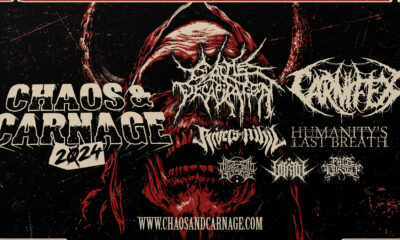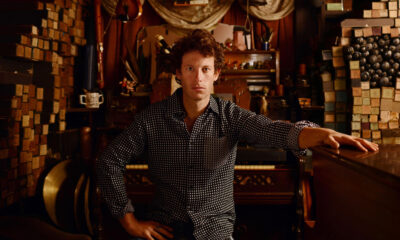Interviews
Wendy Dio on Ronnie James Dio’s Autobiography and Favourite Memories with the Heavy Metal Icon [w/ Audio]
Wendy Dio has teamed up with rock journalist Mick Wall to finish the book Ronnie James Dio began writing before his death. Out now, ‘Rainbow In The Dark’ is the book every Ronnie fan has been waiting for.
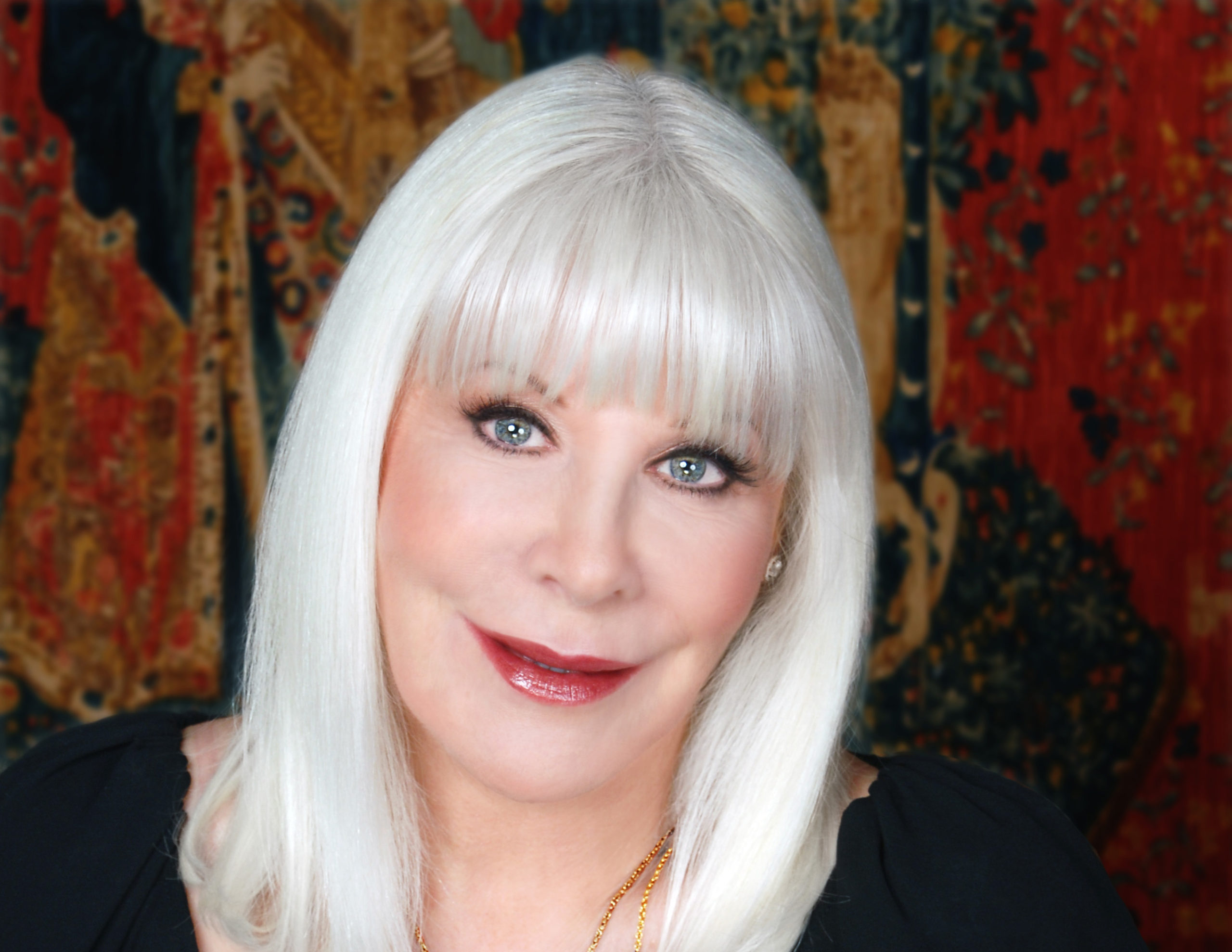
Ronnie James Dio was, and still is, a heavy metal icon. Even years after his heartbreaking passing, his music lives on across the hard rock and heavy metal world. Whether it is from his time in Rainbow, his period in Black Sabbath, or as a solo artist, fans and musicians alike all have their favourite Ronnie album or story.
Now, after many years, his widow Wendy Dio has finally teamed up with rock journalist Mick Wall to finish the book Ronnie began writing before his death. Out now, Ronnie James Dio – Rainbow In The Dark is the book every Ronnie fan has been waiting for. Shortly after its release, we spoke with Wendy about Ronnie, his story, and her memories of the man himself.
Thanks for your time Wendy. The book is finally out, but it was something Ronnie had been working on for years…
Wendy Dio: “Yes, Ronnie had written the book up until Rainbow, and then when he was sick, he had written and scribbled a bunch of notes on notepads and in his computer. We decided to go through all the notes and all the little scribbles that he’d left and then go and dig up all the old interviews from that period of time and put it together so it was in more in his own words. I’d also chime in and out when I remembered things.”
Why did you feel now was the right time to put the book out?
“Well, you know, I had a publishing deal while Ronnie was still alive and then of course, when Ronnie passed away, I couldn’t do it. Then, as time went on, I said I was going to do it and I kept talking about it in interviews and things. Mick Wall said, ‘You know what it’s time we bloody well got this thing out. Let’s do it.’ I said, ‘Alright, the times right. Let’s do it.’ So, about a year ago, actually maybe two years ago, we started to go through all this stuff and everything and get it together then I said, ‘Ok, yeah. Now it’s really the time to get it out.’” (read our review of the book).”
Prior to Ronnie’s death, as you said, he’d been keeping notes and he’d been compiling notes and bits and pieces. Were you involved in that at all?
“Oh, absolutely. All the way. Everything. Yep. And the photos I wanted. I wanted to put photos in there that weren’t you know, just the normal old rock n’ roll photos. I wanted to find things from, you know, from the scrapbooks and everything. Photos, things that the fans have never seen before, more of an insight of Ronnie and who he was and where he actually came from.”
Definitely. Speaking of the fans, it’s been a book people have been after for years. What have fans said to you? Have there been specific things that we’ve wanted in it?
“Oh, yeah. Well, you know, we didn’t actually talk about the photos so much when Ronnie was alive. That was sort of something I did later on after he passed away. Obviously, he wanted to have a photo of his grandma in there and his parents and stuff like that. But, you know, I just went through kind of the timeline in the book and found pictures that went along and match with the story.”
As you said, he handwrote everything, all his notes and everything. What was it like going back through those notes even now?
“Oh, god. Bittersweet. Bittersweet. You know, some things I laughed about, some things I cried about and, you know, it was a journey going back and I think that now was the right time to do it. Now, I could do that. Before, I couldn’t do that.”
You’ve mentioned Mick Wall. He had a big involvement in the book and he also had a massive connection going back with Ronnie. Was it important for you to involve somebody in the book that had a personal connection with you and Ronnie or could you have done it on your own?
“Mick Wall writes fluidly and he could write, you know, like, in between, he could write things down that maybe I wasn’t able to write in the journalistic way of writing.”
Going back, then you met Ronnie at the Rainbow. What was your first impression of him and were you a fan of his work before you met him?
“I didn’t know much about him then. I knew Richie, and I knew his wife and everything. They invited me to a party. Ronnie had just finished doing the album, The Blackmore’s Rainbow, their first album, but they’d never toured yet. I was working at the Rainbow and Richie introduced me to him. He kept following me around but I said ‘he’s too short for me,’ that was my first impression.”
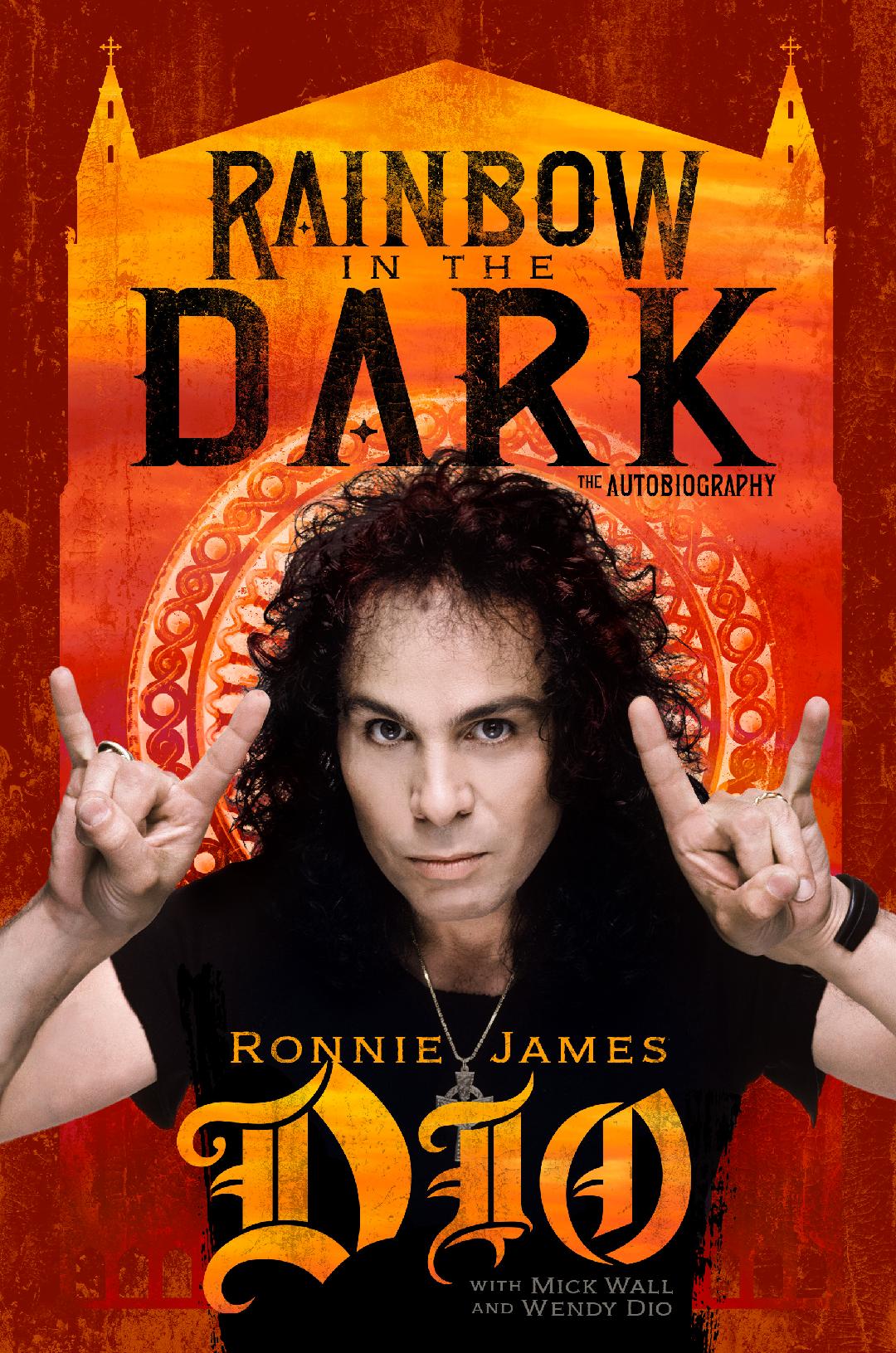
Cover artwork for “Rainbow in the Dark – The Autobiography” by Ronnie James Dio with Wendy Dio and Mick Wall
What was it that attracted you to Ronnie?
“Well, you know, we started going out together and then, after about two weeks, he went on the road, and then he called me and said, ‘Why don’t you quit your job and come out the road with me?’ I said, ‘well, I can’t quit my job but I’ll come for a couple of weeks.’ I went for a couple of weeks, and I never went back.”
What were those two weeks like? Was it what you expected it to be?
“Oh, it was very romantic. It was fun. It was… yeah, it was exciting.”
Reading the book, at the point when he left Rainbow, there seemed to be a lot of tension within the band. Were there any regrets from Ronnie’s side about the way that ended?
“I think so. Absolutely. Ronnie actually was the person who didn’t actually like change. He liked working with Richie and everything. But then it got really uncomfortable. You know? I think that once Jimmy Bain was let go that really hurt Ronnie because he was really close friends with Jimmy and he just got really upset about that.
“Then Richie kind of, you know, it wasn’t working well with them and the record label and Richie were trying to make Ronnie write more commercial songs but Ronnie only writes one way and he didn’t want to write any other way. He wanted to continue writing his songs the way he wrote them about dreams and never give up and just follow your dreams basically. He said I don’t write love songs. I don’t want to do it. Then it got to the point where he was just let go.”
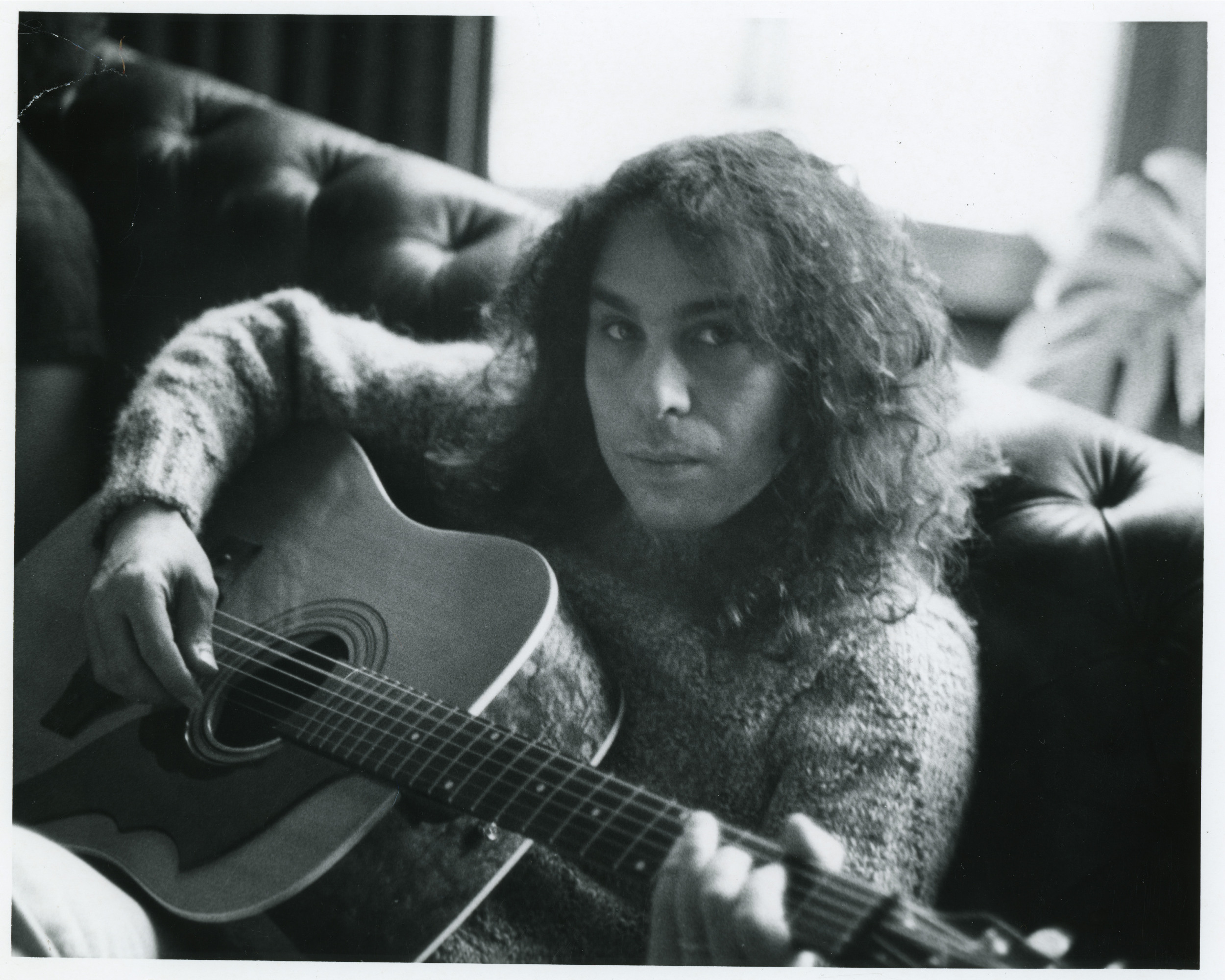
Ronnie James Dio Photo
At that point, I believe that was where you became his manager, wasn’t it?
“Kind of. I kind of became his manager but then of course, when he went into Sabbath, they had a manager. That was Sandy Pearlman so I wasn’t managing then. So I didn’t really start managing Ronnie properly until his own band Dio.”
How did you feel about becoming Ronnie’s manager when he asked you? Did you have any apprehensions?
“Terrified, absolutely terrified. I actually said, ‘Let’s go find some young new bands. Let me see if I can do what I’m doing.’ And we did. We formed Rough Cutt, and I managed Alcatraz and just kind of learned along the way.”
What was the biggest lesson you learned from all that?
“Well, at the time I managed Ronnie, it was a man’s world. It was only Sharon Osbourne and I who were the only two women managers so it was kind of hard. Men were always saying, ‘Oh, you know what you’re doing, you should relinquish them to me and blah, blah, blah,’ and I would just listen to their advice and go ‘Yes. Yes. Yes’ and just carry on.”
After Rainbow then, Ronnie joined Black Sabbath at that point. Reading through some of his notes again, it feels like there was some underlying tension during his time within the band…
“Well, yeah, because everybody was doing drugs. I mean it was fantastic when he first joined the band, it was really wonderful. He really enjoyed writing with Tony (Iommi) and with Heaven and Hell, and then with Mob Rules, but then the tension was there. It started to have tension and stuff, and Ronnie wasn’t happy. He had been given a solo deal during that time. He was just not happy anymore so he decided to leave.”
This leads to my next question. Ronnie talks about his determination to succeed when he went solo. Had there been any talk between the two of you of a solo career before that point while Ronnie was in Sabbath?
“No, no, no. It was always something that, you know, he was going to do later on down the line, whenever, you know, maybe when they had a break or something like that. He never wanted to leave and do a solo thing. He’s always wanted to be in a band and do a band thing but it just got really uncomfortable for him so that’s why he left.”
Going forward to when Ronnie went solo. When he started putting his band together, it kind of feels like he had a vision for what he wanted the band to sound like and who he wanted? Was that the case?
“Absolutely. He’d already written ‘Holy Diver,’ and ‘Don’t Talk To Strangers,’ and ‘We Rock.’ He’d written all these songs… actually, those songs were written for Sabbath to go for Sabbath. Ronnie, a lot of people think he’s just a lyricist. But no, he wrote music as well. I mean, he played the trumpet. He played piano, guitar, bass, you know, he was a very rounded musician.”
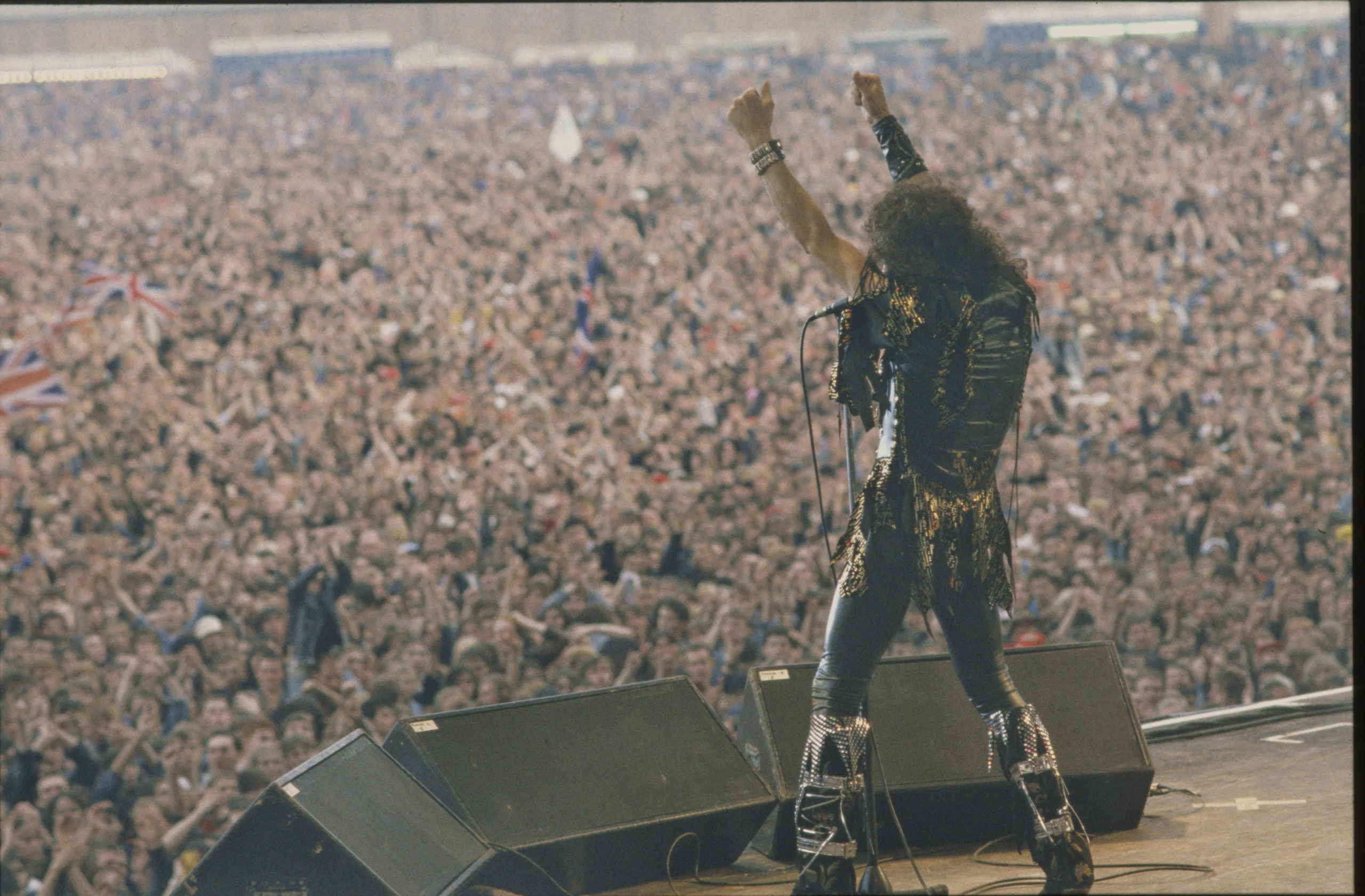
Ronnie James Dio by Brunelli
Early on, he talks a lot about his parents and his upbringing. Looking back at his childhood, are there any of those qualities that he talked about having as a child that he brought into adulthood as an artist?
“Absolutely. I mean, his father forcing him to play the trumpet and everything at a young age and practice all those times and playing the trumpet, I think, obviously, was born with the gift of his voice, but I think that the breathing exercises with the trumpet always helped him with his voice as he knew exactly how to breathe and what to do like an opera singer.”
Onto Ronnie as a solo artist. Did you notice any change with him as an artist when he went solo?
“He went through some periods of being an arsehole. You know? Me. Me. Me. You know, he got over that and, you know, he was just a wonderful human being. He never forgot where he came from. He loved his fans. He did everything for his fans. He never forgot that, without them buying his records, he would never have the things that he could have in life, and would never be where he was.
“He really loved fans. He loved people. He loved talking to people. He liked to talk to people and he asked them about themselves. You know, instead of somebody just talking about themselves, he always wanted to know what they were doing, what they were interested in, and make somebody feel like, you know, like, they’re the most special person in the world and he had a gift for that. And it was genuine.”
Ever since Ronnie passed away there’s been an outpouring of love for him across the heavy metal scene. What’s your one lasting memory of Ronnie because everybody has got their own Ronnie story. What’s your one lasting memory?
“My one memory? I think the happiest thing I think before he passed was that he went back with Sabbath because that was like unfinished business. He loved playing with that band. He loved it. I mean, Tony Iommi always called him the riff master. Geezer Butler was a really good friend of his and a great bass player and Vinnie (Appice) was a drum monster, and I think that it was wonderful that he got to go back with them before he passed and it was like a chapter in his book was closed then.”
Did he feel like it was a chapter that needed closing?
“Oh, yeah, he loved it. I mean, he didn’t, well, we didn’t think he was going to pass away. We never thought it was going to pass away. I mean, all the times he was having the treatment we’d go every two weeks and he’d have his chemo for six hours, and we’d come back and, you know, we’d skip down the hallways saying, ‘we’re killing the dragon. We’re here to kill the dragon.’ We call cancer the dragon.
“Three weeks before he passed away, he was accepting an award from Golden Gods and we just didn’t think, you know, we thought always thought he was going to make it. He always thought he was going to make it and it’s just, you know, such a horrible, horrible disease that just takes everybody’s life, it doesn’t care where they come from.”
It’s a cause you’ve carried on raising money for as well…
“Well, we have to keep Ronnie’s music and his memory alive. Well, that’s my goal in life.”
Holy Diver was the first Dio record I heard. Now it is still held as one of the greatest heavy metal albums of all time. What do you remember from that period?
“Oh, my god, I remember a lot from that period, because, you know, we had some money. We didn’t have millions of dollars. We mortgaged our house to put that show on the road and do everything. We did a lot of things ourselves, you know, I mean, I had to sort of be the production manager and hire all the buses, and the trucks, and the crew and everything because we didn’t have money for a proper production manager. So, I learned a lot of things then. We did a lot of stuff ourselves. We created the album cover. We had the inner sleeve, and I spent a lot of time I remember, you know, doing photographs and making a whole competition, which never actually happened.
“If you ever have one of those albums, the inner sleeve on one side has a whole bunch of different pictures, but each one is actually a song of Ronnie’s. You have to figure out which song it was. That was something that I always wanted to do with Warner Bros. but, you know, at that time, the record company, it was a solo record, they didn’t really care. We really pushed and promoted that ourselves. I had someone go ahead of time, drive two weeks before the concert and go to radio stations or record stores and make sure the record was in, give the radio station tickets for the show. I mean, we did a lot of things that now you hire someone to do, we did it all ourselves. And that was before we had internet or anything.”
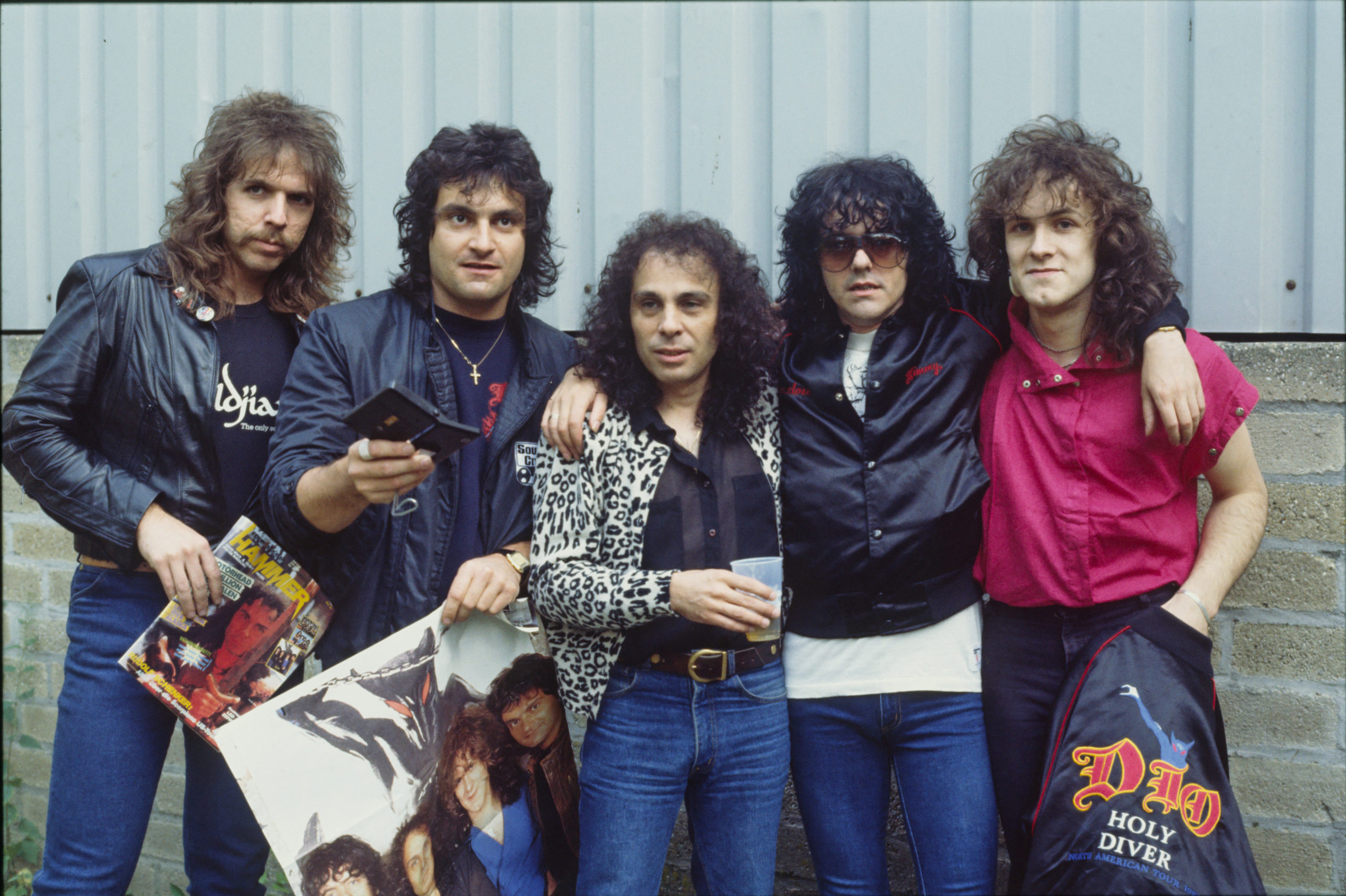
Dio circa ‘Holy Diver’ by Brunelli
What do you think Ronnie would make of this kind of music industry now?
“Oh, I think he loved technology and change. He loved all those things so I think he’d be busy writing and doing another album and maybe producing some young new bands. He was always interested in that.”
At the beginning of the book, one of the first things he talks about is standing outside Madison Square Garden with you. It feels like it was a pivotal moment for Ronnie…
“I think that you know, he always wanted to play Madison Square Garden. That was his ultimate venue. And all the time, even before Elf and whatever, he would drive 250 miles from upstate New York to New York City. He would plod along and try and get someone to listen to his demos or do something. He’d look up and he’d see the venue, Madison Square Garden. The big hope and dream one day was to play in it. Well, he played it with Sabbath before but it wasn’t the same as his own day. The day he was going to play up there. We didn’t have internet then or cell phones then. We went there and there was his name up in lights. He said, ‘Wendy, take a picture…’ and I forgot the camera so we never actually got a photo of the Dio sign up on Madison Square Garden.”
What was there a moment during that whole journey where you thought it doesn’t get any better than this?
“There were so many journeys. We had so many journeys. I mean journeys with Rainbow. Journeys with Sabbath. Journeys with Dio. Just the ins and outs, I mean, the ups and downs and things. Ronnie wasn’t made overnight. There were a lot of trials and tribulations before that. Even after the book because we hit the ‘90s where all the record labels dropped everybody because grunge was in and metal was out and then we had to then go back again and find another label and then go back to play smaller places. I mean, life was just ups and downs the whole time.”
Brilliant. I think that’s a good way to end as well.
“Thank you. We were always happy. We were always happy. We always trudged on and never gave up. And that’s basically Ronnie’s message to his fans. Always follow dreams never give up.”
-

 Music1 week ago
Music1 week agoTake That (w/ Olly Murs) Kick Off Four-Night Leeds Stint with Hit-Laden Spectacular [Photos]
-

 Alternative/Rock1 day ago
Alternative/Rock1 day agoThe V13 Fix #011 w/ Microwave, Full Of Hell, Cold Years and more
-

 Alternative/Rock1 week ago
Alternative/Rock1 week agoThe V13 Fix #010 w/ High on Fire, NOFX, My Dying Bride and more
-

 Features7 days ago
Features7 days agoTour Diary: Gen & The Degenerates Party Their Way Across America
-

 Culture1 week ago
Culture1 week agoDan Carter & George Miller Chat Foodinati Live, Heavy Metal Charities and Pre-Gig Meals
-

 Music1 week ago
Music1 week agoReclusive Producer Stumbleine Premieres Beat-Driven New Single “Cinderhaze”
-

 Indie1 day ago
Indie1 day agoDeadset Premiere Music Video for Addiction-Inspired “Heavy Eyes” Single
-

 Alternative/Rock2 weeks ago
Alternative/Rock2 weeks agoThree Lefts and a Right Premiere Their Guitar-Driven Single “Lovulator”





